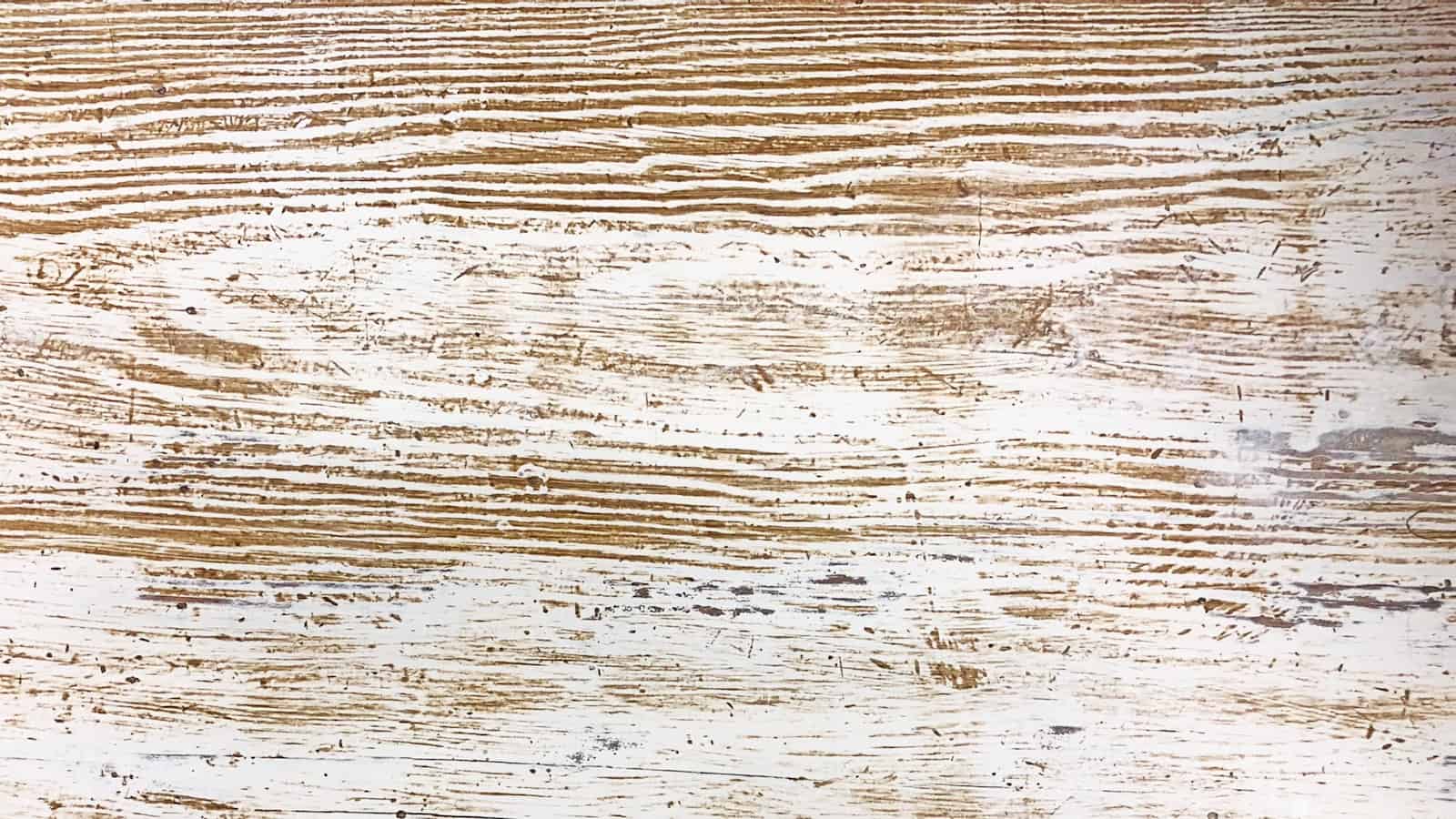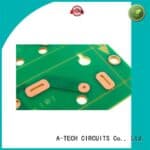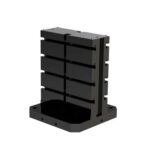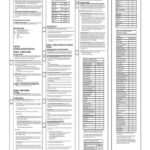Introduction to RayMing PCB Surface Mount Assembly Services
RayMing is a leading provider of high quality printed circuit board (PCB) surface mount assembly services. With state-of-the-art manufacturing facilities and a team of experienced engineers, RayMing offers comprehensive SMT solutions for customers across various industries, including consumer electronics, automotive, medical devices, and telecommunications.
What is Surface Mount Technology (SMT)?
Surface Mount Technology (SMT) is a method of assembling electronic components directly onto the surface of a printed circuit board (PCB). Unlike through-hole technology, where components are inserted into holes drilled in the PCB, SMT components are placed on top of the board and soldered in place. This process allows for smaller components, higher component density, and faster assembly times.
Advantages of SMT PCB Assembly
SMT PCB assembly offers several advantages over through-hole technology:
- Smaller component sizes
- Increased component density
- Faster assembly times
- Reduced manufacturing costs
- Improved reliability and performance
RayMing’s SMT PCB Assembly Capabilities
PCB Design and Prototyping
RayMing’s team of experienced engineers can assist customers with PCB design and prototyping. Using advanced design software and rapid prototyping techniques, RayMing can quickly turn ideas into functional prototypes, allowing customers to test and refine their designs before moving into full-scale production.
Component Procurement and Inventory Management
RayMing has established relationships with leading component suppliers worldwide, ensuring access to a wide range of high-quality components at competitive prices. The company’s intelligent inventory management system allows for efficient tracking and control of components, minimizing lead times and reducing the risk of obsolescence.
Automated SMT Assembly Lines
RayMing’s state-of-the-art manufacturing facilities are equipped with fully automated SMT assembly lines, capable of producing high-quality PCB assemblies with exceptional speed and precision. These assembly lines feature:
- High-speed pick-and-place machines
- Automatic solder paste printers
- Reflow ovens
- Automated optical inspection (AOI) systems
Quality Control and Testing
To ensure the highest levels of quality and reliability, RayMing employs a comprehensive quality control and testing process. This includes:
- Incoming quality control (IQC) for components
- In-process quality control (IPQC) during assembly
- Automated optical inspection (AOI) for solder joint quality
- Functional testing and burn-in testing
- Final quality control (FQC) before packaging and shipping
RayMing’s SMT PCB Assembly Process
Step 1: PCB Design and Fabrication
The SMT PCB assembly process begins with the design and fabrication of the printed circuit board. RayMing’s engineers work closely with customers to optimize the PCB layout for manufacturability and performance. Once the design is finalized, the PCB is fabricated using high-quality materials and advanced manufacturing techniques.
Step 2: Solder Paste Printing
The first step in the SMT assembly process is the application of solder paste to the PCB. This is done using an automatic solder paste printer, which precisely deposits a thin layer of solder paste onto the PCB’s solder pads. The solder paste acts as both an adhesive and a conductive medium for the electronic components.
Step 3: Component Placement
After the solder paste is applied, the PCB is loaded into a high-speed pick-and-place machine. This machine uses computer-controlled nozzles to pick up and place electronic components onto the PCB with exceptional speed and accuracy. The components are placed according to the PCB’s design, ensuring precise alignment with the solder pads.
Step 4: Reflow Soldering
Once all the components are placed, the PCB is transferred to a reflow oven. The reflow oven heats the PCB and the components to a specific temperature profile, causing the solder paste to melt and form a secure bond between the components and the PCB. The temperature profile is carefully controlled to ensure optimal solder joint formation and to prevent damage to the components.
Step 5: Inspection and Testing
After the reflow soldering process, the PCB undergoes a series of inspections and tests to ensure quality and functionality. This includes:
- Automated optical inspection (AOI) to check for solder joint defects and component placement accuracy
- In-circuit testing (ICT) to verify the electrical connectivity and functionality of the PCB
- Functional testing to ensure the PCB performs as intended in its final application
Step 6: Packaging and Shipping
Once the PCB has passed all inspections and tests, it is packaged and shipped to the customer. RayMing offers a range of packaging options to suit different customer requirements, including electrostatic discharge (ESD) protection, moisture barrier bags, and custom packaging solutions.

RayMing’s SMT PCB Assembly Services for Various Industries
Consumer Electronics
RayMing provides SMT PCB assembly services for a wide range of consumer electronics products, including:
- Smartphones and tablets
- Wearable devices
- Smart home appliances
- Gaming consoles and peripherals
Automotive Electronics
RayMing’s SMT PCB assembly capabilities extend to the automotive industry, supporting the production of electronic components and systems for:
- Infotainment systems
- Advanced driver assistance systems (ADAS)
- Electric vehicle charging systems
- Automotive sensors and control modules
Medical Devices
RayMing offers specialized SMT PCB assembly services for the medical device industry, adhering to stringent quality standards and regulatory requirements. Applications include:
- Diagnostic equipment
- Patient monitoring systems
- Implantable devices
- Medical imaging systems
Telecommunications
RayMing supports the telecommunications industry with high-quality SMT PCB assembly services for:
- 5G infrastructure equipment
- Fiber optic communication systems
- Wireless network devices
- Satellite communication systems
Frequently Asked Questions (FAQ)
1. What is RayMing’s minimum order quantity (MOQ) for SMT PCB assembly?
RayMing’s minimum order quantity for SMT PCB assembly varies depending on the complexity of the PCB and the specific requirements of the customer. In general, RayMing can accommodate orders as low as 100 pieces, with higher volumes offering more competitive pricing.
2. How long does it take for RayMing to complete an SMT PCB assembly order?
The lead time for an SMT PCB assembly order depends on several factors, including the complexity of the PCB, the availability of components, and the order volume. Typically, RayMing can complete orders within 2-4 weeks, with expedited options available for urgent projects.
3. What certifications and quality standards does RayMing adhere to?
RayMing is committed to maintaining the highest quality standards and adheres to the following certifications and standards:
- ISO 9001:2015 Quality Management System
- ISO 14001:2015 Environmental Management System
- IATF 16949:2016 Automotive Quality Management System
- IPC-A-610 Acceptability of Electronic Assemblies
- IPC-J-STD-001 Requirements for Soldered Electrical and Electronic Assemblies
4. Can RayMing source components for my SMT PCB assembly project?
Yes, RayMing offers component sourcing services as part of its SMT PCB assembly solutions. The company has established relationships with leading component suppliers worldwide, ensuring access to a wide range of high-quality components at competitive prices.
5. Does RayMing offer design for manufacturing (DFM) support?
Yes, RayMing’s experienced engineers can provide design for manufacturing (DFM) support to help customers optimize their PCB designs for manufacturability, reliability, and cost-effectiveness. This includes recommendations for component selection, layout optimization, and design rule compliance.
Conclusion
RayMing is a leading provider of high-quality surface mount (SMT) PCB assembly services, offering comprehensive solutions for customers across various industries. With state-of-the-art manufacturing facilities, experienced engineers, and a commitment to quality and reliability, RayMing is well-positioned to support the growing demand for advanced electronic products and systems.
By partnering with RayMing for your SMT PCB assembly needs, you can benefit from:
- Advanced manufacturing capabilities and automated assembly lines
- Comprehensive quality control and testing processes
- Experienced engineers and design support services
- Access to a wide range of high-quality components at competitive prices
- Flexible order quantities and lead times to suit your specific requirements
To learn more about how RayMing can support your SMT PCB assembly projects, please visit our website or contact our sales team for a consultation.






Leave a Reply